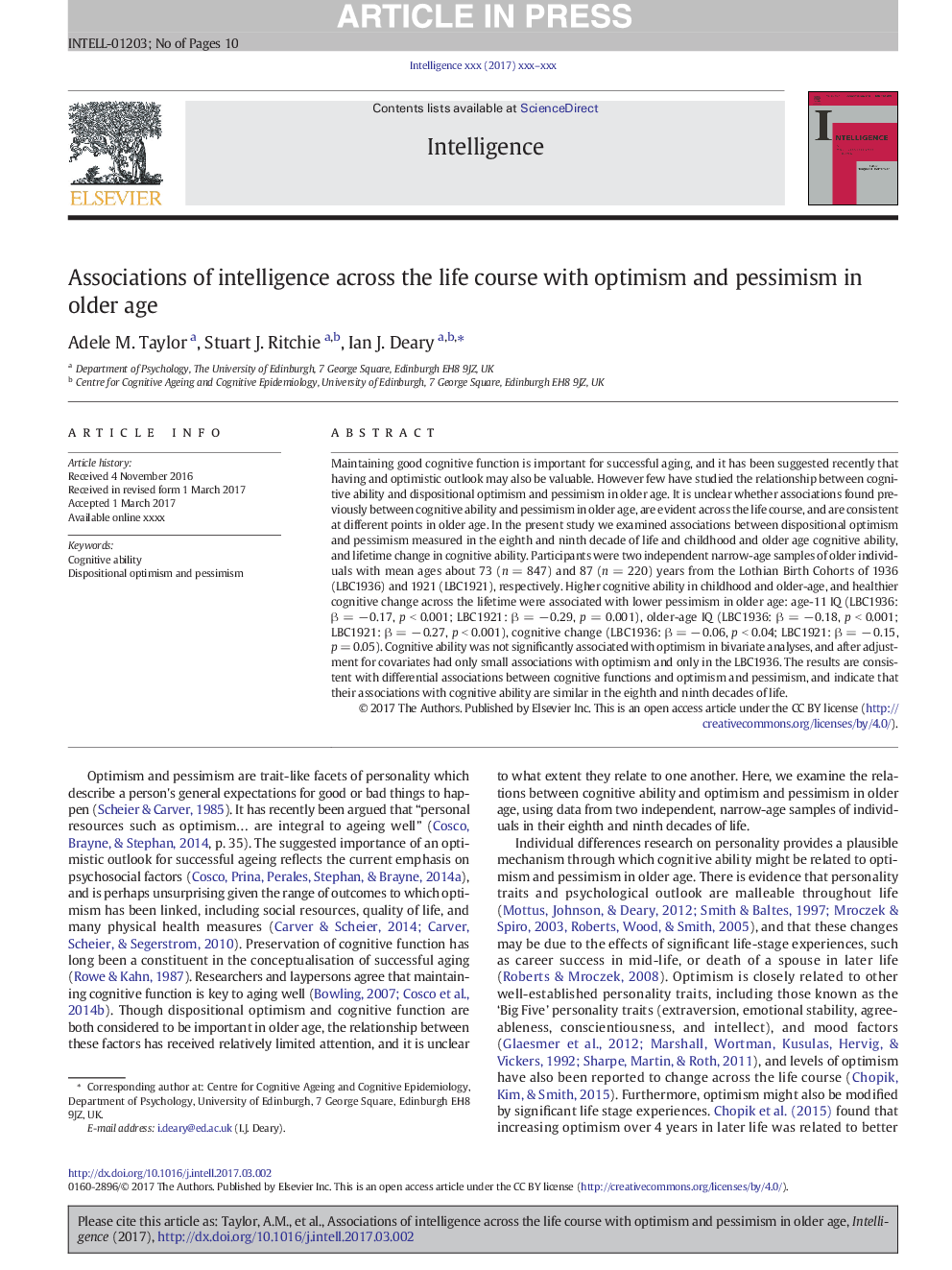ترجمه فارسی عنوان مقاله
انجمن های هوش در طول دوره زندگی با خوش بینی و بدبینی در سن بالاتر
عنوان انگلیسی
Associations of intelligence across the life course with optimism and pessimism in older age
| کد مقاله | سال انتشار | تعداد صفحات مقاله انگلیسی |
|---|---|---|
| 132448 | 2017 | 10 صفحه PDF |
منبع

Publisher : Elsevier - Science Direct (الزویر - ساینس دایرکت)
Journal : Intelligence, Volume 62, May 2017, Pages 79-88
ترجمه کلمات کلیدی
توانایی شناختی، خوش بینی و بدبختی،
کلمات کلیدی انگلیسی
Cognitive ability; Dispositional optimism and pessimism;

